Very Heavy Chess
Very Heavy Chess is a chessvariant where all compounds of standard chess pieces are used. It can be seen as an extension of Heavy Chess.
The seminal principle, which is inspired from Sac Chess, is to see some elemental bricks behind the FIDE chess pieces. Those are the moves of the kNight (N), Rook (R), Bishop (B) and King (K). By associating those elements, several fairy pieces can be made, and those are very well known by chessvariants fans. Double compounds are RN, BN, KN, KR, KB. Of course, RB is the Queen. Triple compounds may also be defined: RBN, RKN, BKN. Of course RBK brings nothing more than the Queen (RB) as the sliding moves of R and B are covering the one-step move of K.
Very Heavy Chess is using a pair of every double compound, the Queen being one of them, and of two of the three triple compounds. Only the strongest, the Amazon (RBN) is unique in each side. Thus, in Very Heavy Chess there are 2 RN, 2 BN, 2 KN, 2 KR, 2KB, 2 RB (Queens), 2 RKN, 2 BKN and 1 QN (Amazon). Plus 1 King and a full line of Pawns. A lot of firepower!
You can play Very Heavy Chess with Game Courier here!
Setup
The board has 10 x 12 squares
There are 36 pieces per side:
White's pieces:
- 2 Popesses (a1, l1), 2 Marshalls (b1, k1), 2 Cardinals (c1, j1), 2 Admirals (d1, i1), 2 Queens (e1, h1), 2 Missionaries (f1, g1) on 1st row,
- 1 King (g2), 1 Amazon (f2), 2 Bishops (e2, h2), 2 Knights (d2, i2), 2 Rooks (c2, j2), 2 Centaurs (b2, k2), 2 Heroines (a2, l2) on 2nd row,
- 12 Pawns on 3rd row.
Black's pieces mirroring with King (g9), Amazon (f9), etc.
The initial setup follows some principles that have been prescribed for Sac Chess:
- Maintaining the relative initial arrangement of the FIDE chess, except for one difference: the FIDE Queen is replaced by an Amazon.
- Do not put more than one piece with a "Rook-content" per column
Initial Setup:
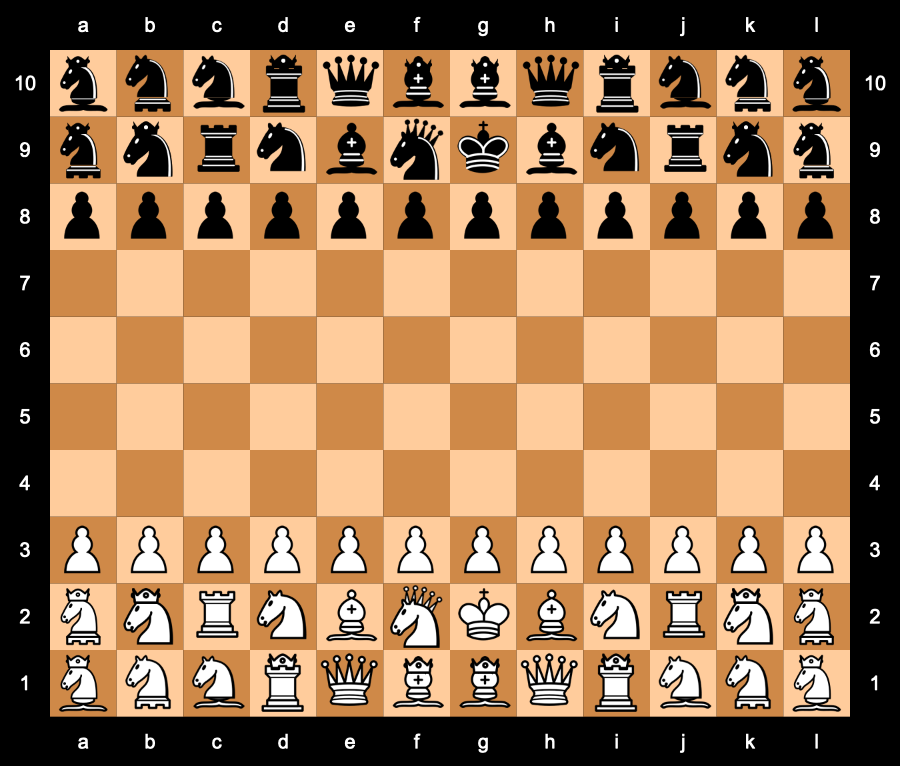
Pieces
King, Queen, Rook, Bishop, Knight move as in standard FIDE chess.
Pawns move also as in standard chess, including initial double step and en-passant capture. The only difference is for promotion, which is extended to the non-standard pieces (see below).
Amazon: it combines the move of Queen and Knight. Amazon is the most usual name for this piece.
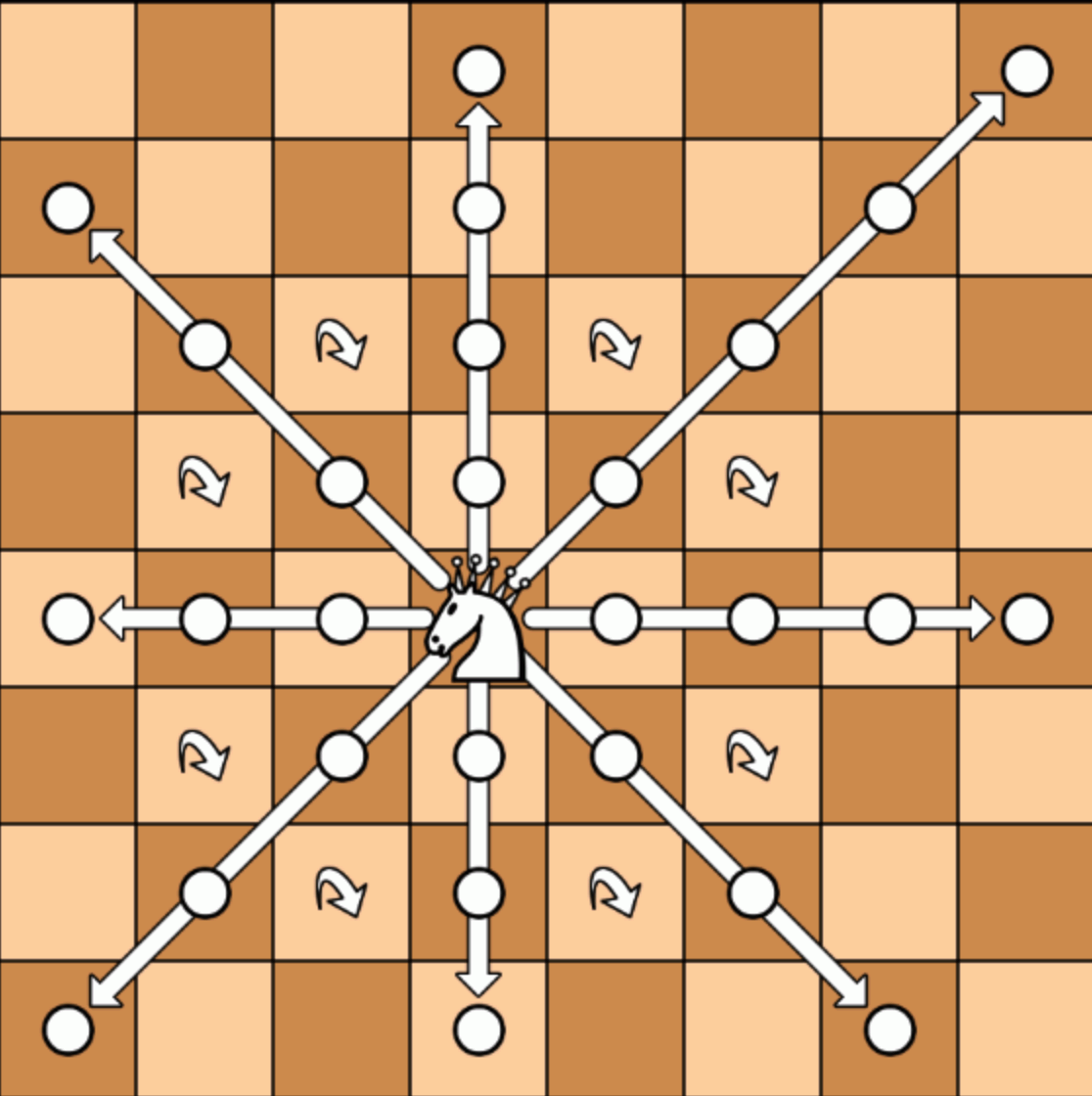
Marshall: it combines the move of Rook and Knight. It is also called a Chancellor. The name Marshall, also popular among chess variants, is used by consistency with my other variants.
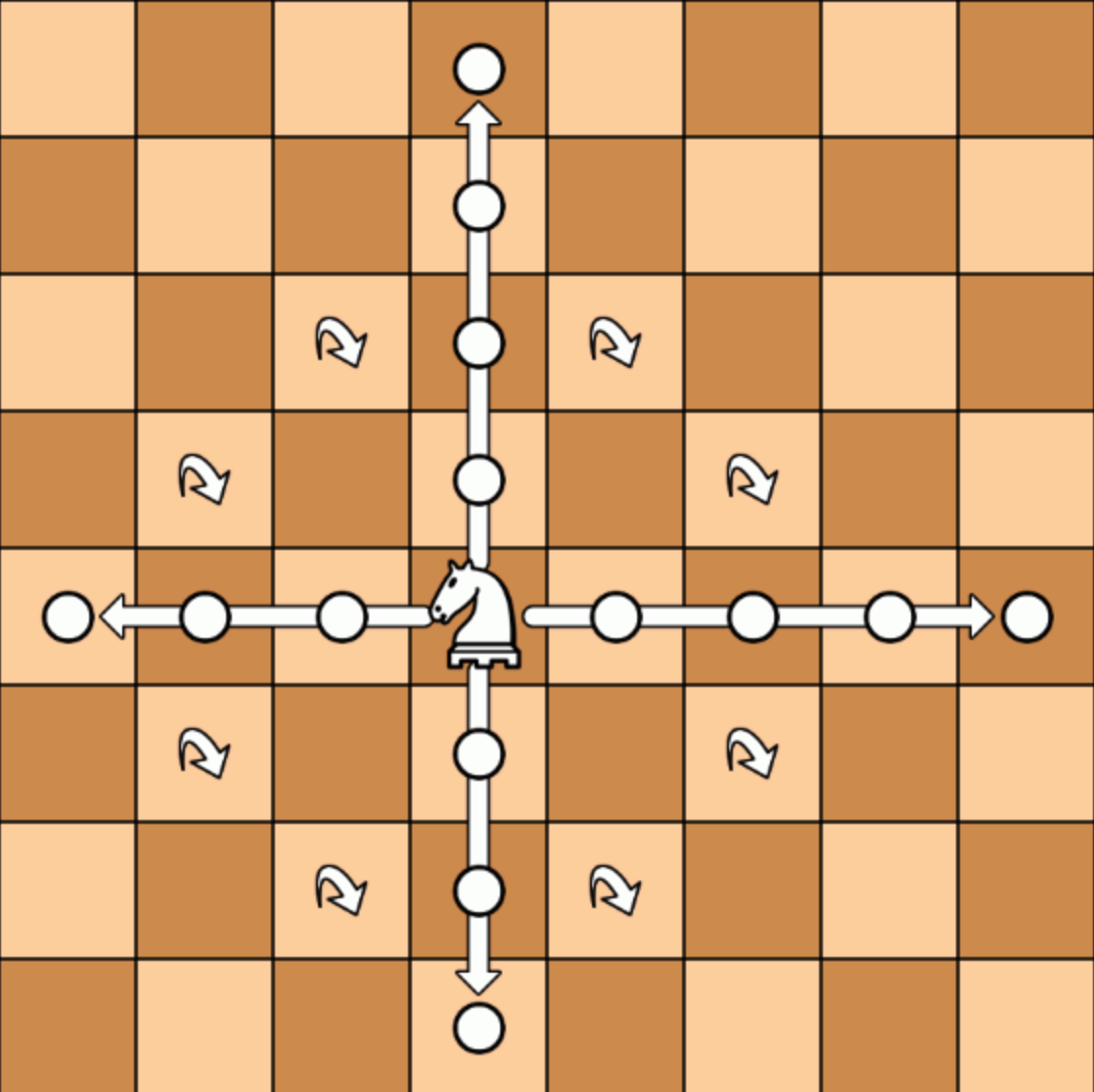
Cardinal: it combines the move of Bishop and Knight. It is also called an Archbishop. The name Cardinal, also popular among chess variants, is used by consistency with my other variants.
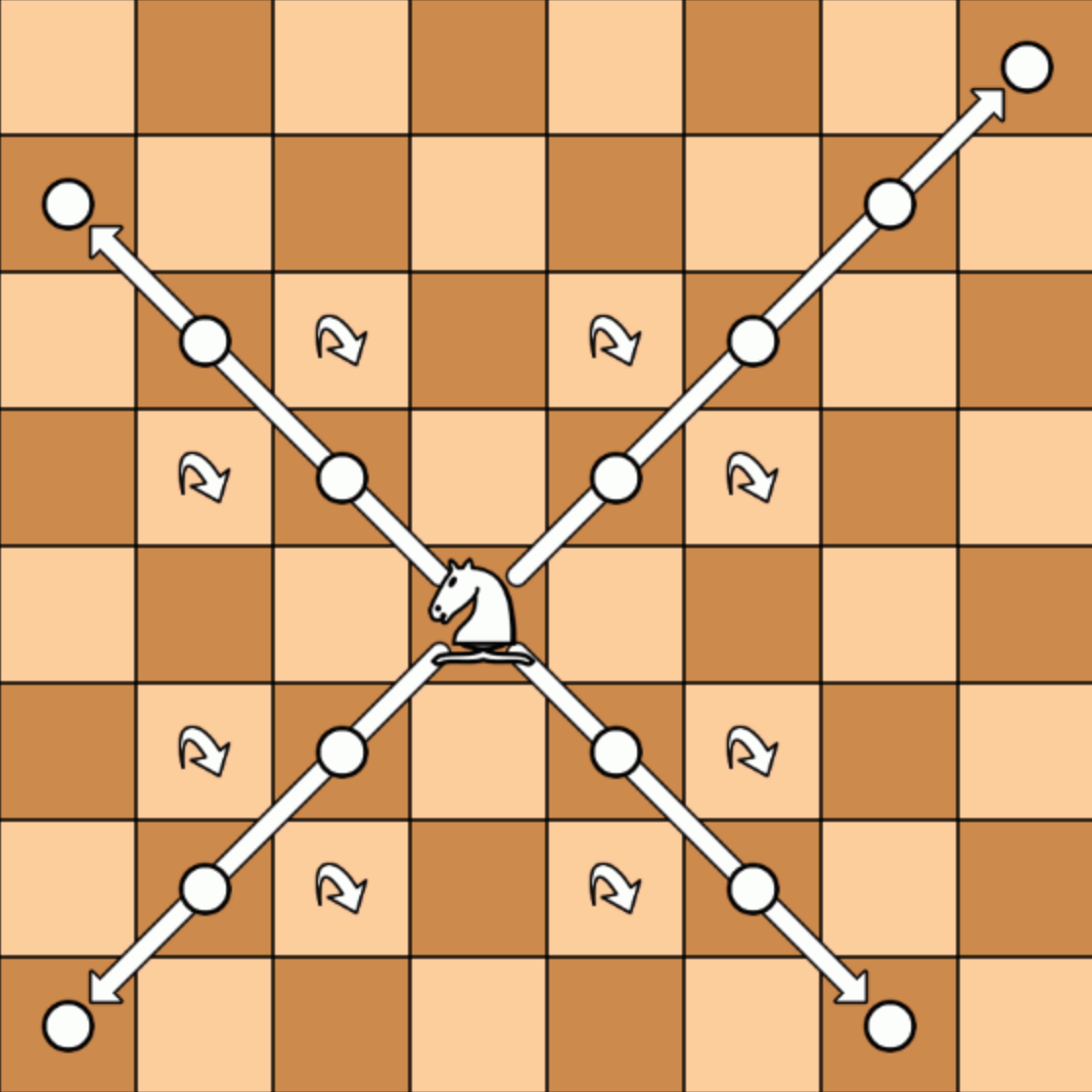
Centaur: it combines the moves of Knight and non-royal King. Centaur is the most usual name for this piece.
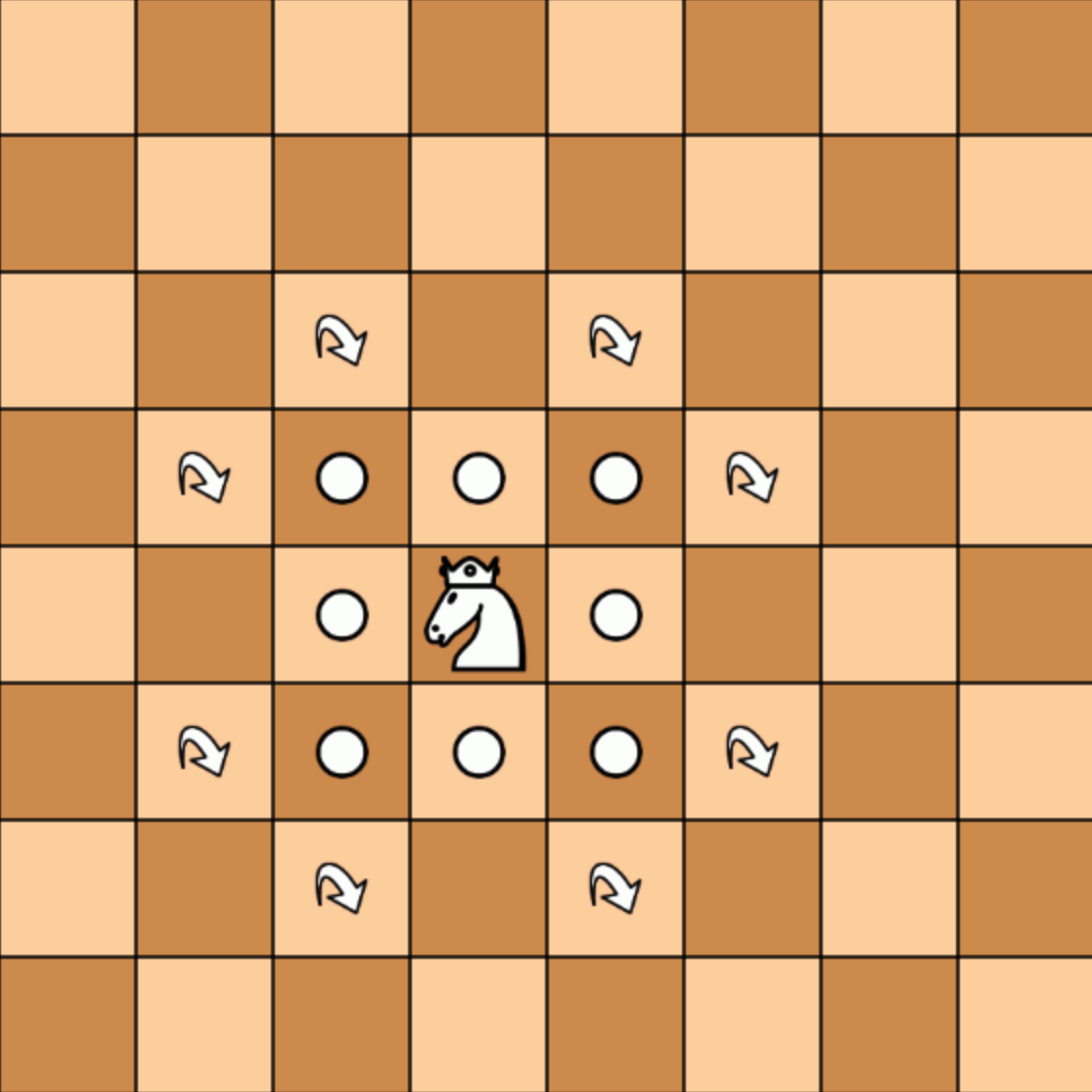
Admiral: it is another compound piece that moves as a Rook or a non-royal King. A "Crowned Rook". That means that it is a Rook that can also step one space diagonally. It corresponds to the Dragon King that is found in Shogi. It is a Sailor in Sac chess. Dragon King seemed not appropriate in the context of this variant and I wanted a more elevated name than Sailor, hence my proposal of naming this piece an Admiral.
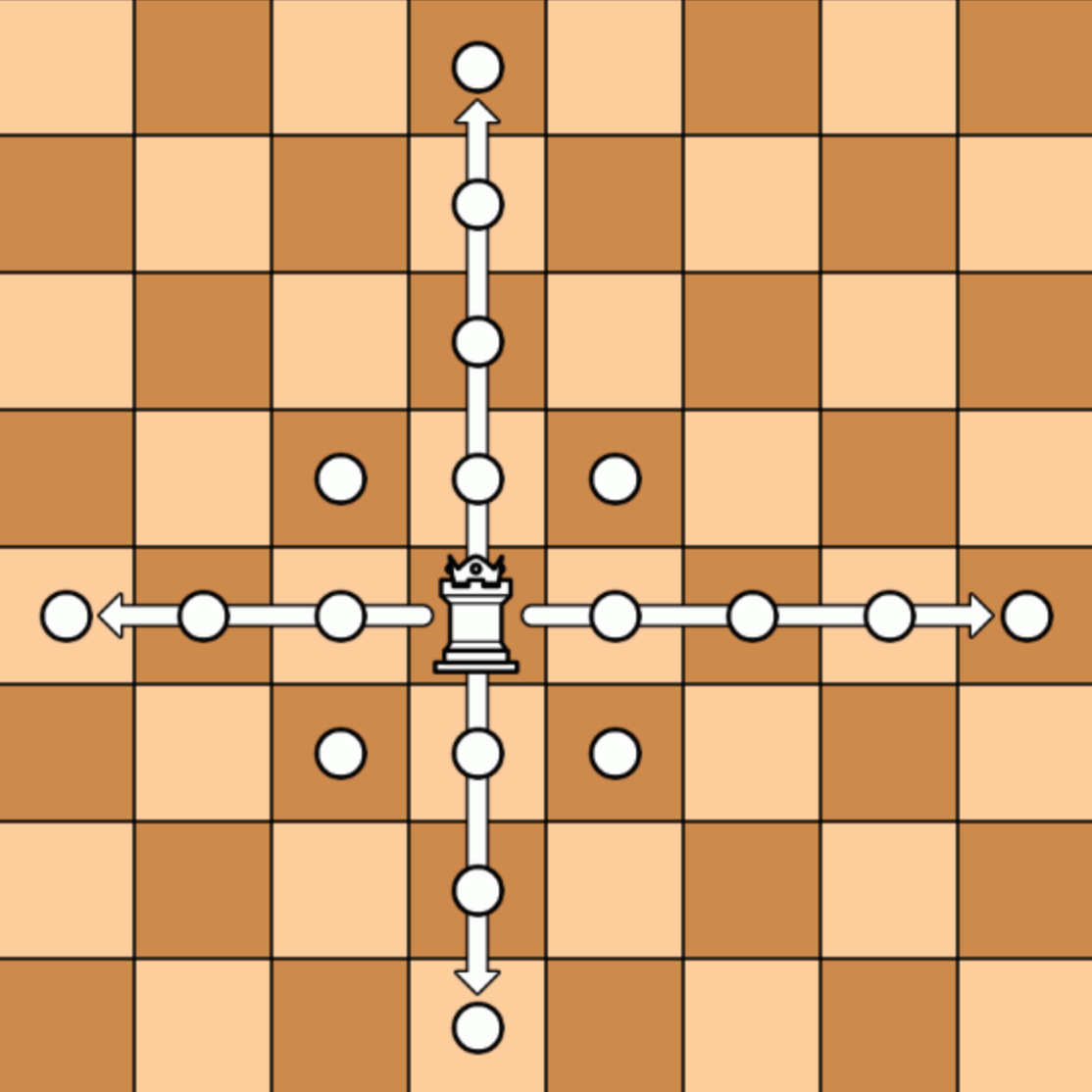
Missionary: it is another compound piece that moves as a Bishop or a non-royal King, a "Crowned Bishop". That means that it is a Bishop that can also step one space orthogonally. It corresponds to the Dragon Horse that is found in Shogi. It is a Missionary in Sac chess. Dragon Horse seemed not appropriate in the context of this variant, so I kept the name of Missionary.
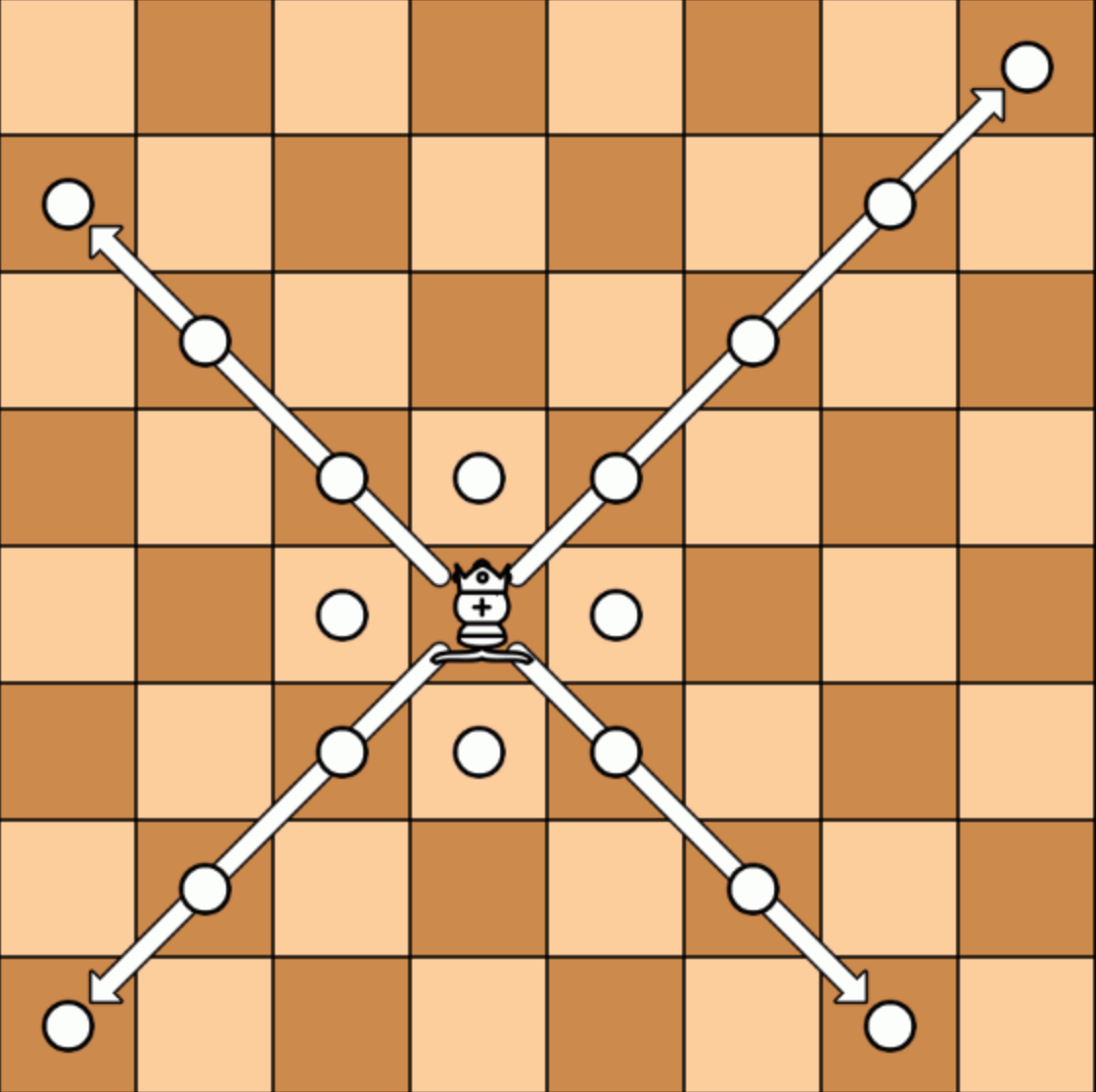
Heroine: it is a triple compound piece that moves as a Rook or as a King or as a nKight. She is a "Crowned Marshall". It has been baptized Archancellor for Teutonic Knight's Chess, but I found this name too long. As this piece is between the strengths of Queen and Amazon, I wanted a female name. I'm open to suggestions.
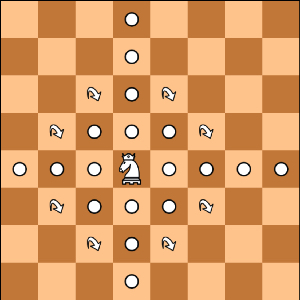
Popess: it is a triple compound piece that moves as a Bishop or as a King or as a nKight. It is a "Crowned Cardinal". For the name I wanted a female character in the lexical fields of religion and power. (I had first called it a Templar, but this has been used for Bishop+Dabbaba in Templar Chess and Templar is not feminine). It is a Crown Princess in Teutonic Knight's Chess. Popess seems unused in CVs but I'm open to suggestions. For instance, Abbess has been suggested in the comments of this page, and indeed, this makes a nice alternative for those who are bothered by Popess.
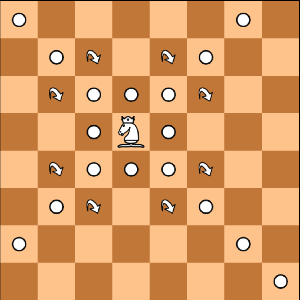
Rules
Castling: The King may castle with either Rook, with conditions as in standard chess.
Pawn Promotion: A Pawn reaching the last rank of the board is immediately replaced by any piece other than Pawn or King: Amazon, Heroine, Popess, Queen, Marshall, Cardinal, Admiral, Missionary, Centaur, Rook, Bishop or Knight.
En Passant capture: Any time a Pawn takes a double step and passes through the capture square of an opposing Pawn, that Pawn may capture the Pawn as if it had only moved one square. This en passant capture must be made in the immediate move following the double step.
End Of Game: The end-of-game rules, checkmate, stalemate, etc., are identical to standard chess.
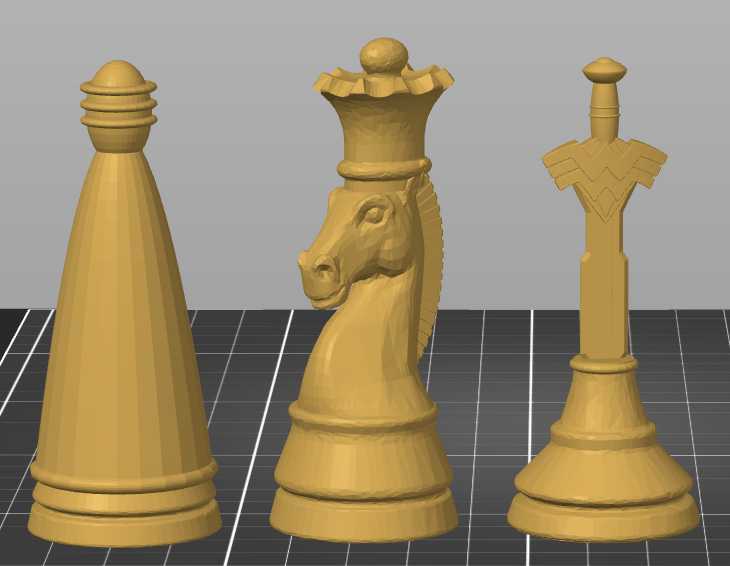
The Triple Compounds (left to right): Popess / Amazon / Heroine
Notes
Deep thanks to H.G. Muller for making the Interactive Diagram below
|
satellite=very
graphicsDir=/graphics.dir/alfaeriePNG/
files=12
ranks=10
whitePrefix=w
blackPrefix=b
graphicsType=png
squareSize=50
darkShade=#CF8948
lightShade=#FFCC9C
rimColor=#000000
coordColor=#FFFFFF
firstRank=1
promoChoice=AHOQMCJDYRBN
promoZone=1
symmetry=mirror
useMarkers=1
pawn::::a3-l3
knight:N:::d2,i2
bishop::::e2,h2
rook::::c2,j2
missionary:Y:BW:promotedbishop:f1,g1
admiral:D:RF:promotedrook:d1,i1
centaur:J:KN:knightguard:b2,k2
cardinal:C:BN::c1,j1
marshall:M:RN:chancellor:b1,k1
queen::::e1,h1
popess:O:BWN:cardinalwazir:a1,l1
heroine:H:RFN:chancellorferz:a2,l2
amazon::::f2
king::KisjO2::g2
|
|
 This 'user submitted' page is a collaboration between the posting user and the Chess Variant Pages. Registered contributors to the Chess Variant Pages have the ability to post their own works, subject to review and editing by the Chess Variant Pages Editorial Staff.
This 'user submitted' page is a collaboration between the posting user and the Chess Variant Pages. Registered contributors to the Chess Variant Pages have the ability to post their own works, subject to review and editing by the Chess Variant Pages Editorial Staff.
By Jean-Louis Cazaux.
Last revised by Jean-Louis Cazaux.
Web page created: 2020-12-22. Web page last updated: 2020-12-22
